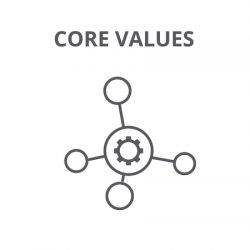March 12, 2018
Organisations need to create a ‘smart everywhere’ environment finds Smart Summit
 Work is no longer a place but a set of activities which lead to a set of outcomes that could be delivered anywhere. Or as John Blackwell, Quora Consulting’s Managing Director succinctly described it at the first of the 2018 Quora Smartworking Summit’s held last week, organisations need to create a ‘smart everywhere’ environment. New digital platforms make far it easier for people to work in exactly the way they want. Research by Quora has revealed that there are 5 million people currently working in the UK gig economy or around 15.6 percent of the total workforce. More people are working post retirement age and want to work in a way that they can control, while there are increasing numbers who simply want more autonomy in their lives in the way that self-employment can offer. (more…)
Work is no longer a place but a set of activities which lead to a set of outcomes that could be delivered anywhere. Or as John Blackwell, Quora Consulting’s Managing Director succinctly described it at the first of the 2018 Quora Smartworking Summit’s held last week, organisations need to create a ‘smart everywhere’ environment. New digital platforms make far it easier for people to work in exactly the way they want. Research by Quora has revealed that there are 5 million people currently working in the UK gig economy or around 15.6 percent of the total workforce. More people are working post retirement age and want to work in a way that they can control, while there are increasing numbers who simply want more autonomy in their lives in the way that self-employment can offer. (more…)























 Employers’ efforts in the US to improve staff health and wellbeing are falling short of employees’ expectations, claims a new report. Nearly two-thirds of employees (65 percent) in a report from Willis Towers Watson agree that managing their health is a top priority, but while the majority of employers (56 percent) believe their wellbeing programmes have encouraged employees to live a healthier lifestyle, only 32 percent of employees agree. Eighty-seven percent of employers who participated in the 22nd annual Best Practices in Health Care Employer Survey say increasing employee engagement in health and well-being is a top priority and the research warns that employees in poor health are twice as likely to be disengaged at work and take almost three times as many days off as employees who are in very good health. Employers can improve health behaviour through designing the workplace environment to make it easier for employees to stay fit, eat well, breathe fresh air and address stress adds the report.
Employers’ efforts in the US to improve staff health and wellbeing are falling short of employees’ expectations, claims a new report. Nearly two-thirds of employees (65 percent) in a report from Willis Towers Watson agree that managing their health is a top priority, but while the majority of employers (56 percent) believe their wellbeing programmes have encouraged employees to live a healthier lifestyle, only 32 percent of employees agree. Eighty-seven percent of employers who participated in the 22nd annual Best Practices in Health Care Employer Survey say increasing employee engagement in health and well-being is a top priority and the research warns that employees in poor health are twice as likely to be disengaged at work and take almost three times as many days off as employees who are in very good health. Employers can improve health behaviour through designing the workplace environment to make it easier for employees to stay fit, eat well, breathe fresh air and address stress adds the report.












March 6, 2018
How to reboot an activity based working project that has ground to a halt
by Karin Stahl • Comment, Flexible working, Technology, Workplace design